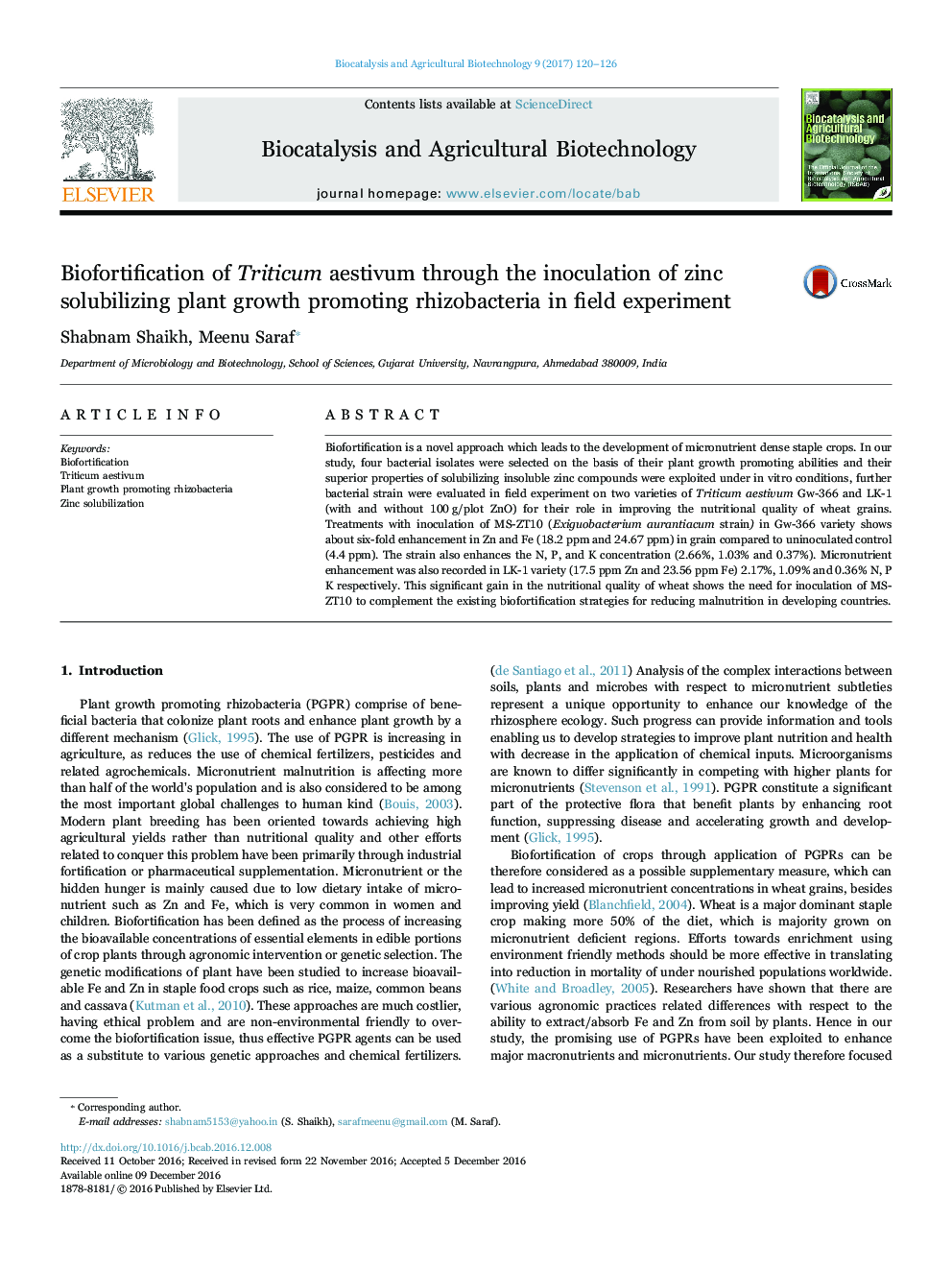| Article ID | Journal | Published Year | Pages | File Type |
|---|---|---|---|---|
| 5520557 | Biocatalysis and Agricultural Biotechnology | 2017 | 7 Pages |
â¢Zinc Solubilizing PGPR strains were found to be promising for biofortification.â¢Inoculation with MS-ZT10 shows about six-fold increase in Zn and Fe.â¢Enhancement of Zn and Fe was up to 18.2 ppm and 24.67 ppm in Triticum aestivum grain.â¢MS-ZT10 (Exiguobacterium auranticum strain) can be used as biofortification.
Biofortification is a novel approach which leads to the development of micronutrient dense staple crops. In our study, four bacterial isolates were selected on the basis of their plant growth promoting abilities and their superior properties of solubilizing insoluble zinc compounds were exploited under in vitro conditions, further bacterial strain were evaluated in field experiment on two varieties of Triticum aestivum Gw-366 and LK-1 (with and without 100Â g/plot ZnO) for their role in improving the nutritional quality of wheat grains. Treatments with inoculation of MS-ZT10 (Exiguobacterium aurantiacum strain) in Gw-366 variety shows about six-fold enhancement in Zn and Fe (18.2Â ppm and 24.67Â ppm) in grain compared to uninoculated control (4.4Â ppm). The strain also enhances the N, P, and K concentration (2.66%, 1.03% and 0.37%). Micronutrient enhancement was also recorded in LK-1 variety (17.5Â ppm Zn and 23.56Â ppm Fe) 2.17%, 1.09% and 0.36% N, P K respectively. This significant gain in the nutritional quality of wheat shows the need for inoculation of MS-ZT10 to complement the existing biofortification strategies for reducing malnutrition in developing countries.
